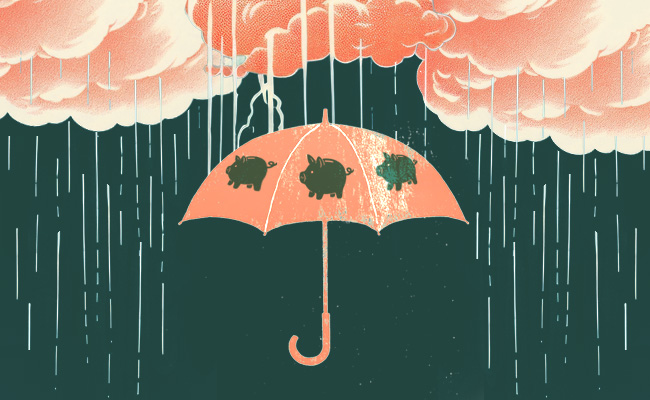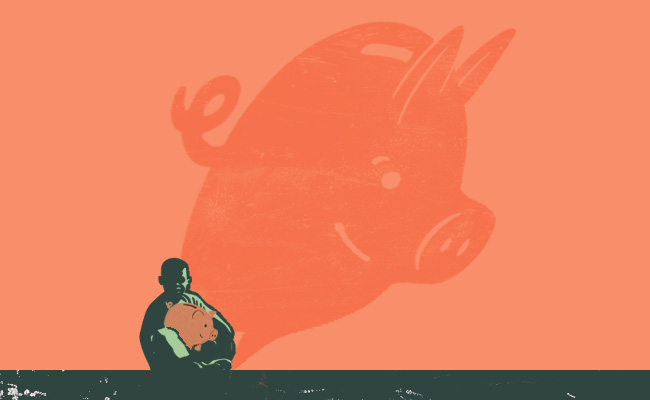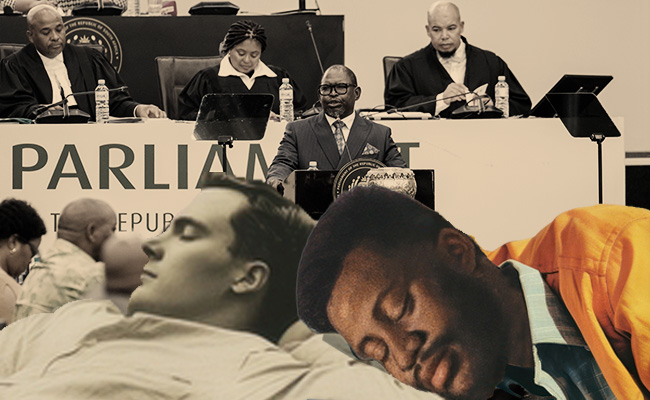Privilege is a word that gets thrown around a lot these days. We talk about social privilege, economic privilege, health-care privilege and educational privilege. However, there’s one form of privilege that’s rarely mentioned, yet it’s perhaps the most fundamental of all: the privilege of thinking long term.
As we mark National Savings Month in July, most of us take our retirement funds and investment portfolios for granted. Yet the harsh reality is that many South Africans cannot plan beyond next week’s grocery shopping or next month’s rent. Long-term thinking is a luxury many can’t afford.
According to the 2023 Old Mutual Savings and Investment Monitor, 70% of South Africans don’t have enough savings to cover three months’ worth of expenses. Let that sink in. Two out of three people in this country are living so close to the financial edge that a single unexpected expense – a medical emergency, a car breakdown or job loss – could send them spiralling into debt.
The conversation about interest rates, market dynamics, investing in stocks, bonds or property is meaningless when you’re one accident away from financial disaster. The idea of saving for retirement, investing or building wealth is a distant dream.
Financial vulnerability breeds financial stress. It’s a knot that sits in your stomach – and it compounds with every tough choice: pay the rent or fix the fridge? Without a financial buffer, you are trapped in perpetual crisis management. An emergency savings fund is the antidote to this cycle; it’s the foundation of financial stability and should be the top financial priority for everyone.
For most people, the absence of emergency savings isn’t about poor financial planning or lack of discipline. It’s about the impossibility of saving when every rand that comes in is already spoken for. It should come as no surprise that South Africa has a negative household savings rate. When you’re choosing between groceries and school fees, between rent and electricity, the idea of setting aside money for some hypothetical future emergency feels absurd. It’s like being asked to save for a holiday while your house is on fire.
For many, the reality is that they’re forced to borrow to cover emergencies. Regardless of whether this is from friends or family, or a loan shark, with household debt exceeding R2.5-trillion and debt-to-income ratios already at 63%, doing so only tightens the noose, locking them into yet more debt repayments that devour their income.
Month-to-month survival
But here’s the thing about privilege: recognising it is the first step towards doing something to change it. And if you’re reading this, you have the opportunity to start building a different kind of advantage: the privilege of choice.
An emergency savings fund isn’t just about money. It isn’t an investment; it’s insurance. It’s about buying yourself options. It’s the difference between accepting the first job offer that comes along and being able to wait for the right one. It’s the option between staying in a toxic relationship because you can’t afford to leave, and having the freedom to walk away. It’s the distinction between having predatory lending terms forced upon you or the option to find other forms of relief.
With Savings Month upon us, it is the perfect time to start building this foundation. But before you rush to open just any savings account, understand that not all savings accounts are created equal. The structure of your emergency fund is as important as the amount you put into it.
Traditional bank savings accounts often present a false choice: access or interest. If you want easy access to your money, you’ll typically earn a pitiful interest rate that is unlikely to beat inflation, which means your savings will actually lose value over time. If you want decent returns, you’ll have to lock your money away in a fixed deposit and pay penalties or lose interest if you need to access it before the term ends. This defeats the whole point of emergency savings.
Money market funds solve this dilemma. They offer higher interest rates than traditional savings accounts while maintaining the liquidity you need in an emergency. Your money isn’t locked away, but it’s working harder for you than it would in a standard savings account. Think of it as the sweet spot between earning decent returns and maintaining access to your funds.
Here’s a battle plan for kick-starting your emergency savings:
- Set a clear target: six months of monthly expenses. Not six months of your current salary, but six months of what you actually need to survive – rent, utilities, groceries, minimum debt payments, and essential expenses. This isn’t about maintaining your current lifestyle; it’s about maintaining your basic security.
- Start small and start now: put your spare change into a jar labelled “My Emergency Savings”. It doesn’t matter if it’s R100 or R1,000, the most important thing is to start. And though that might be difficult to comprehend if you’re facing real financial pressure, building the habit is as important as building the balance. Once you start seeing that money accumulate, once you feel the quiet confidence that comes from having even a small buffer, you’ll find ways to contribute more.
- Automate it: automate your emergency savings as much as you can. Set up a stop order that moves money to your emergency fund on payday, before you have a chance to spend it elsewhere. Make it invisible, routine, non-negotiable. The money you never see is the money you won’t miss. Too many people think of saving as something you do after the bills are paid, the groceries are bought, and the fun is had. But the truth is: saving comes before all that. It’s the foundation, not the finishing touch.
- Guard it fiercely: define what constitutes an emergency – losing a job, a medical crisis, or a critical home or car repair are emergencies. A sale on a new TV, a holiday or a friend’s wedding are not. Think of your emergency savings as your firewall – a sacred reserve that you must protect from lifestyle creep and impulse purchases.
- Top it up: when you do have to dip into your emergency fund – and you will – don’t see it as failure. See it as a success. Your emergency fund did precisely what it was supposed to do: it gave you options when you needed them most. Then get back to building it up again.
The foundation of freedom
Your emergency savings fund isn’t about becoming wealthy. It’s about freedom. Freedom from the anxiety of living month to month. Freedom from the desperation, the anxiety and the vulnerability that comes with having no financial cushion.
Emergency savings are the foundation of financial freedom. Not investments, not property, not get-rich-quick schemes. Just the boring, unglamorous accumulation of money you hope you’ll never need to use. It’s the most important investment you’ll ever make – an investment in your own agency, your own freedom, your own future.
As we mark Savings Month in a country where 62% of people live without this basic security, let’s reframe the conversation – building an emergency fund isn’t just smart financial planning, it’s an act of private rebellion against a system that keeps people trapped in cycles of debt and desperation. It’s claiming the privilege of thinking beyond tomorrow, one rand at a time.
Thomas Brennan is a co-founder of Franc, a South African fintech that helps people invest simply and affordably.
Top image: Rawpixel / Currency collage.
Sign up to Currency’s weekly newsletters to receive your own bulletin of weekday news and weekend treats. Register here.











Sound advice – problem is that almost no company accepts small debit orders into money market funds…perhaps you should list a few that do…I’ll start:
Gryphon Money Market Fund – R200 d/o and you get great interest from the first rand!
Satrix Now – no minimums but watch out for the fees – they could eat the small amount invested
Thank you for a real example, exactly what I was hoping to find in this article. Pity there are not more.